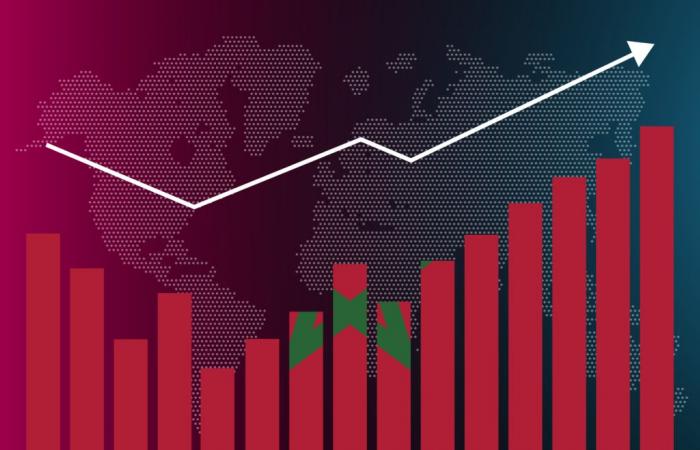BMCE Capital Research has just published a study, entitled « Strategy » – October 2024, which looks at Morocco’s current economic challenges, particularly around the issue of employment. In a context marked by a relaxation of international monetary policies, with reductions in key rates by the FED and the ECB, the world economy seems to be moving towards more favorable prospects, from which Morocco could benefit.
The publication highlights Morocco’s continued efforts to strengthen economic performance. With the recent signing of 22 agreements worth 106 billion dirhams (MAD) as part of a renewed strategic partnership with France, BMCE Capital Research believes that these initiatives could support long-term growth, particularly after the recognition by France of Moroccan sovereignty over the southern provinces.
However, the revision of the IMF’s growth forecasts to 2.8% for 2024, aligned with the estimates of Bank Al-Maghrib and BMCE Capital (respectively 2.8% and 2.6%), highlights economic dynamics relatively moderate for the current year. In 2025, the IMF forecasts a slight improvement to 3.6%, which BMCE Capital Research says could be boosted by major sporting events planned in Morocco, potentially boosting domestic consumption and economic activity.
The job market remains under pressure with an unemployment rate of 13.6% in the third quarter of 2024, despite the creation of 213,000 jobs in urban areas. The agricultural sector, on the other hand, continues to suffer from persistent drought, accentuating job insecurity in rural areas. The draft Finance Law 2025 highlights measures to support employment, in particular through the creation of 29,000 public jobs, tax incentives for businesses, and support for SMEs and SMEs within the framework of the new charter. ‘investment.
The public finance situation has improved with a positive ordinary balance of 29.1 billion dirhams at the end of September 2024, supported by an increase in tax and non-tax revenue. The trade balance, however, remains in deficit, with an increase in imports linked to domestic consumption, but also an increase in exports thanks to the automobile, aeronautics and phosphates sectors.
Projections for 2025
BMCE Capital Global Research maintains its forecasts unchanged for 2024 and envisages growth of 3.9% in 2025, supported by a cereal harvest of 55 million quintals and an increase in internal consumption stimulated by tax reductions. Despite the uncertainties, the reduction in tax pressure and the planned reforms could thus encourage favorable economic dynamics for the country.
The Casablanca Stock Exchange experienced a slight correction in October, with the main MASI index losing 1.42% despite solid half-year results. However, cumulative gains for 2024 remain positive, suggesting market resilience despite profit-taking.
BMCE Capital Research concludes that Morocco could take advantage of this more flexible international context while continuing its reform efforts to address structural issues linked to employment and economic diversification. The risk and opportunity map for 2025 remains unchanged, highlighting a cautious but optimistic outlook for the year ahead.
LNT






